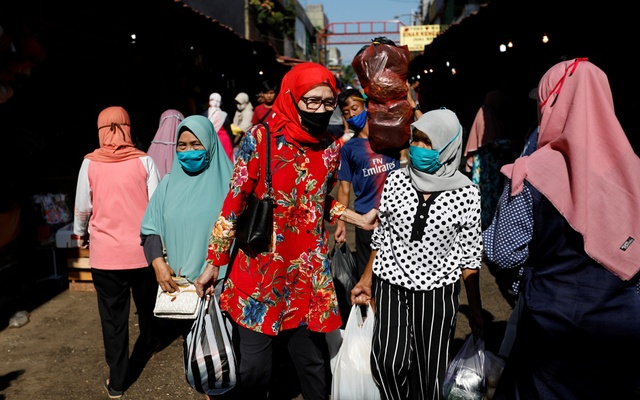
>> Reuters
A traditional market on the island of Java has moved outdoors and set stalls at least a metre (3.3 ft) apart as Indonesia looks to safely maintain the bazaars where most people go to get affordable food and are part of the fabric of society.
The 857 vendors at the Salatiga market in Central Java province, as well as visitors, are required to wear masks and avoid physical contact with each other to mitigate the spread of the novel coronavirus, the head of the vendor association said.
A vegetable seller said the social distancing measures made him feel safe and comfortable at work. At least eight confirmed cases of the virus have been found in the city of Salatiga, local media has reported.
Indonesia, which had over 14,000 confirmed COVID-19 cases as of Sunday, has been reluctant to enforce a complete nationwide lockdown. Instead, many cities have adopted “large-scale social restrictions” that have closed businesses and encouraged people to stay home.
Attempts to keep traditional market stalls running are happening elsewhere in the country, in one form for or another, with precautions in place.
In Depok, a city near the capital Jakarta, for example, one vegetable seller has set up his stall in a residential area to make sure residents can buy necessities without having to venture too far from home.
Customers must wear masks, sit apart while waiting for their turn to shop and wash their hands after shopping.
“This rule must be obeyed by everyone because it is a shared responsibility to prevent the spread of COVID-19,” said local resident Sumarna, who uses only one name, after shopping at the stall.
Indonesian authorities expect cases of the new coronavirus to peak in late May and taper off in the following month, if the country is successful in avoiding a second wave of infections.

